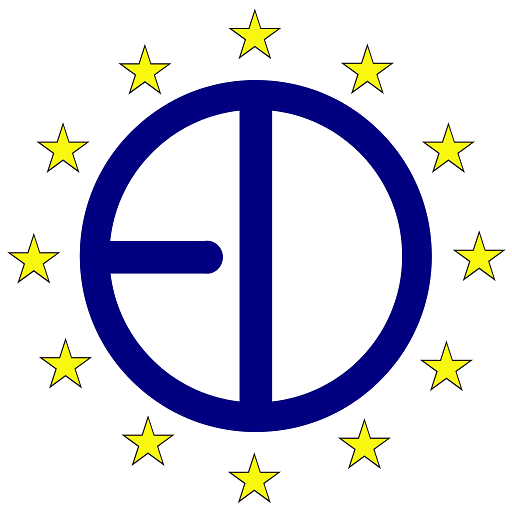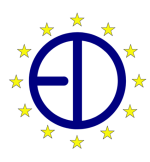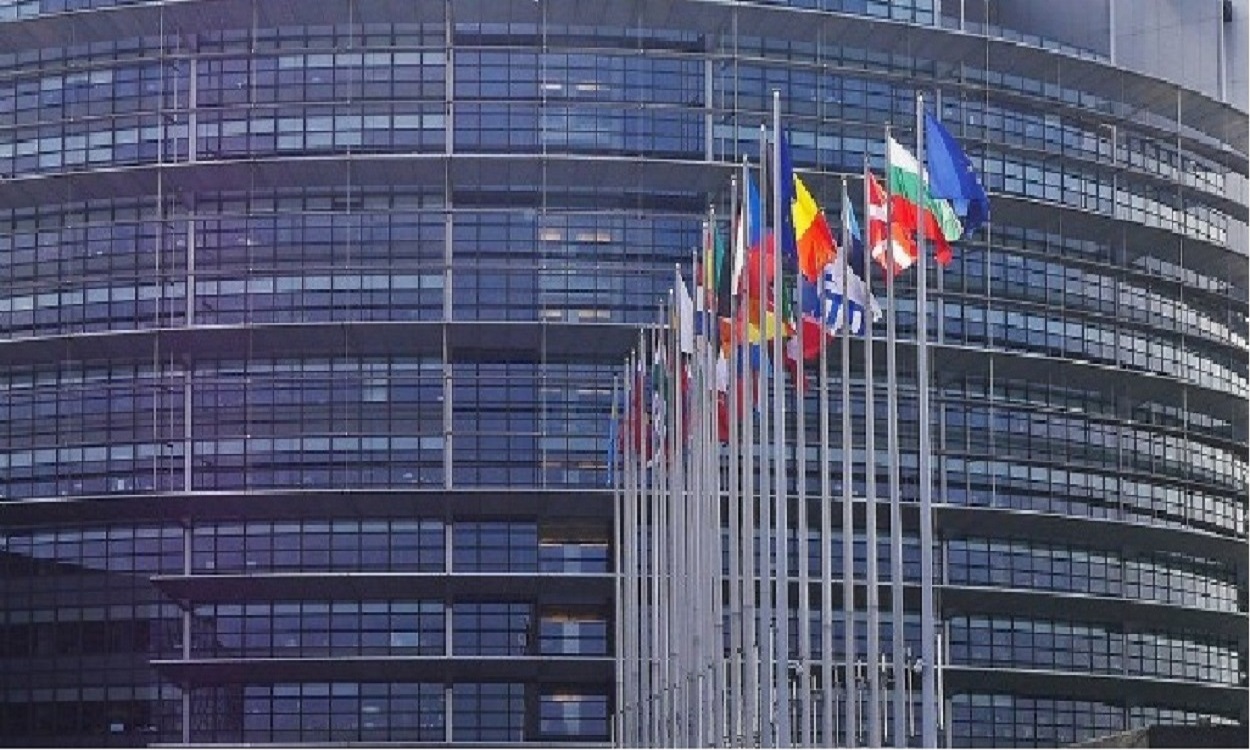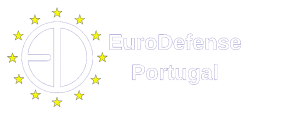O reconhecido interesse das Conclusões do Conselho da União Europeia (6 de Março de 2017), sobre o estado da implementação da Estratégia Global da EU, na sua dimensão de Segurança e Defesa, motiva a publicação neste website da Associação EuroDefense-Portugal da versão original e integral do respectivo texto.. Chamamos a especial atenção dos nossos leitores para a criação, integrada no EMUE, de uma célula de Planeamento e Conduta de Missões Militares da EU não executivas (MPCC), à semelhança da célula CPCC que já existe no SEAE para o planeamento e condução das missões civis . Por não executivas deve entender-se não combatentes (treino, aconselhamento, SSR, etc).
Temos, ainda, o dever de tentar desmistificar, aqui, a ideia errada de que, como resultado do Brexit, foi finalmente aprovada a criação de um Quartel-General Operacional para a EU, à semelhança do SHAPE da NATO. Nada mais falso, mas é já um avanço significativo relativamente às estruturas existentes até agora, sobretudo tendo em vista facilitar a aplicação do conceito “comprehensive approach” e a obtenção de sinergias entre as variadas missões civis-militares. No futuro poderá constituir um primeiro passo para se caminhar no sentido do tão almejado (para alguns) QGO da EU. Será?
COUNCIL CONCLUSIONS ON PROGRESS IN IMPLEMENTING THE EU GLOBAL STRATEGY IN THE AREA OF SECURITY AND DEFENCE
Foreign Affairs Council, 6 March 2017
Introduction
- In accordance with the 15 December 2016 European Council Conclusions and guidance contained therein, the Council has reviewed progress in the implementation of its conclusions of 17 October and 14 November It welcomes the initial advances made, as set out below, in fulfilling through a comprehensive set of actions the EU’s level of ambition derived from the EU Global Strategy in the area of security and defence. It calls for further work and guidance and agrees to revert to these matters in May, ahead of the June European Council.
- The Council recalls that this should contribute to enhancing the Union’s ability to act as a security provider and to enhance the Common Security and Defence Policy, as well as its global strategic role and its capacity to act autonomously when and where necessary and with partners wherever
- The Council welcomes the ongoing work on the implementation of the European Defence Action Plan by the Commission, in close cooperation with the Member It also welcomes the Commission’s intention, included in its Communication dated 30 November 2016, to present further proposals in the first semester of 2017 for the establishment of a European Defence Fund including a window on the joint development of capabilities to be commonly agreed by the Member States, and a research window (whose first step is the launch of the Preparatory Action for defence-related research) to be examined under the next Multiannual Financial Framework. The Council recalls the invitation made by the European Council in December 2016 to the European Investment Bank to examine steps with a view to supporting investments in defence research and development activities.
The Council also reiterates, in line with its Conclusions of 14 November 2016, the need to enhance the effectiveness of CSDP and the development and maintenance of Member States’ capabilities, supported by a more integrated, sustainable, innovative and competitive European Defence Technological and Industrial Base (EDTIB), which also contributes to jobs, growth and innovation across the EU and can enhance Europe’s strategic autonomy, strengthening its ability to act with partners. The Council recalls that these efforts should be inclusive, with equal opportunities for defence industry in the EU, balanced and in full compliance with EU law.
- The Council furthermore welcomes the swift action in follow-up to the Council conclusions of 6 December 2016 implementing all areas of the Joint Declaration signed in Warsaw by the President of the European Council, the President of the European Commission and the Secretary General of the North Atlantic Treaty In this regard, it calls for further work, in full respect of the principles of inclusiveness, reciprocity and the autonomy of the EU’s decision-making processes, and to report back on progress in June 2017.
Improving CSDP crisis management structures
- Today, the Council approves the Concept Note on the operational planning and conduct capabilities for CSDP missions and Further to the December European Council Conclusions and in line with its Conclusions of November 2016, this Note contains measures to improve the EU’s capacity to react in a faster, more effective and more seamless manner, building on existing structures and in view of enhancing civilian-military synergies, as part of the EU’s Comprehensive Approach. On this basis, the Council agrees in particular:
- To establish, as a short term objective, a Military Planning and Conduct Capability (MPCC) within the EU Military Staff in Brussels which will be responsible at the strategic level for the operational planning and conduct of non-executive military missions, working under the political control and strategic guidance of the Political and Security The newly created MPCC will work in parallel and in a coordinated way with the Civilian Planning and Conduct Capability (CPCC).
- That the Director General of the EU Military Staff will be the Director of the MPCC and in that capacity will assume the functions of missions’ commander for non- executive military missions, including the three EU Training Missions deployed in the Central African Republic, Mali and Somalia, in line with the agreed Terms of
- To invite the High Representative to propose consolidated terms of reference of the EU Military Staff, as well as to propose a Council Decision reflecting the above arrangements and amending the Council Decisions of the CSDP missions
- To bring together civilian and military expertise in key mission support areas within a Joint Support Coordination Cell at the Brussels level, in order to work on a daily basis to further strengthen and enable effective civilian/military coordination and cooperation in the operational planning and conduct of CSDP civilian and non-executive military This would further contribute to the full implementation of the EU’s Comprehensive Approach, while respecting the respective civilian and military chains of command and the distinct sources of financing.
- To review the establishment of the MPCC and the Joint Support Coordination Cell one year after becoming fully operational, but no later than by the end of 2018, based on a report by the High This review should be prepared in full consultation with the Member States and would not prejudge any political decisions to be taken.
The Council also agrees to proposals on strategic foresight and oversight contained in the Concept Note and requests the High Representative, in cooperation with the Commission as appropriate, to proceed with their implementation.
Permanent Structured Cooperation (PESCO)
- To strengthen Europe’s security and defence in today’s challenging geopolitical environment, the Council agrees on the need to continue work on an inclusive Permanent Structured Cooperation (PESCO) based on a modular It should be open to all Member States who are willing to make the necessary binding commitments and meet the criteria, based on articles 42.6 and 46 and Protocol 10 of the Treaty. The Council recognises that PESCO could significantly contribute to fulfilling the EU’s Level of Ambition including with a view to the most demanding missions and that it could facilitate the development of Member States’ defence capabilities and strengthen European defence cooperation, while making full use of the Treaties. It notes that any capabilities developed through PESCO will remain owned and operated by Member States. It recalls that Member States have a single set of forces that they can use in other frameworks. Underlining the responsibility and competence of the Member States in the area of defence, it stresses that PESCO should help generate new collaborative efforts, cooperation and projects.
- To this end, the Council invites the Member States, supported by the EEAS and the European Defence Agency (EDA), to continue working in order to further consider and develop:
- An agreement on a shared understanding of the common commitments, goals and criteria on the basis of the relevant provisions of the Treaty, as well as the governance
- The possible projects and initiatives that Member States are willing to pursue through PESCO including in a modular way and while making use of ongoing projects and making new commitments in the area of defence investment, with a view to tackling recognised shortfalls and addressing EU and Member States’ priorities in the field of capabilities; improving the deployability and operational availability of their armed forces; and increasing their interoperability by pooling and sharing existing
This work would feed into the preparation of the notification to the Council and the High Representative and of the Council Decision establishing PESCO.
- While noting that they are standalone initiatives, the Council underlines the need to reflect on the possible links between PESCO and the Coordinated Annual Review on Defence (CARD). The Council recognises that more work is needed to explore the potential link to the Commission’s proposals to establish a European Defence Fund, including on how PESCO projects and initiatives could benefit from its mechanisms, which will be subject to further decisions to be taken on the setting up and final structure of the
- The Council agrees to revert in May 2017 in order to provide further political guidance on the possible decision-making.
Coordinated Annual Review on Defence (CARD)
- The Council welcomes the work launched to develop the principles and scope of a Member States-driven CARD to deepen cooperation in defence, including by fostering capability development addressing shortfalls, and ensure more optimal use, including coherence, of defence spending It stresses the importance to develop through CARD a more structured way to deliver the key capabilities needed in Europe, based on greater transparency, political visibility and commitment from Member States, while avoiding any unnecessary additional administrative effort by Member States and EU institutions. The Council stresses the need to ensure coherence between the CARD and the NATO Defence Planning Process where requirements overlap while recognising the different nature of the two organisations and their respective responsibilities. The Council stresses that CARD, as an overarching tool, needs to build on and make best use of existing processes and tools and should draw as much as possible on available information generated through them.
- The Council highlights that CARD would be implemented on a voluntary basis and in full respect of Member States’ prerogatives and commitments in defence, including, where it applies, in collective defence, and their defence planning processes, and taking into account external threats and security challenges across the The Council stresses the importance of bringing greater transparency and political visibility to the European capability landscape. In this regard, it underlines that CARD should provide an overarching assessment on capability-related issues contributing to political guidance by the Council. The Council therefore underlines that CARD should help Member States deliver on critical capabilities notably on the basis of the capability priorities agreed through the EU’s Capability Development Plan. It should also provide Member States with a forum for coordinating and discussing their national defence planning – including in terms of defence spending plans, taking into account the commitments made by the European Council in December 2016 – in a more structured way that builds on the voluntary measures set out in the Policy Framework for Systematic and Long-Term Defence Cooperation. While noting that they are standalone initiatives, the work on CARD should be undertaken in coherence with the implementation of the European Defence Action Plan.
- The Council welcomes the idea of regular and dedicated meetings of Defence Ministers’, initially every two years, and more frequently if so The EDA should play a key role in CARD to provide the overarching objective assessment and supporting analysis in the form of a written report to Defence Ministers, while making full use of existing tools and acting also as CARD secretariat.
- The Council agrees to the parameters of CARD set out above and invites the High Representative/Head of the Agency, in close cooperation with Member States, to develop more detailed proposals on the scope, methods and content of CARD by June, notably in terms of interaction with Member States, with a view to preparing the establishment of CARD by the end of The first full CARD should be implemented based notably on the revised Capability Development Plan priorities as well as other existing processes and tools as of 2018.
Developing Civilian Capabilities
- The Council underlines the importance of taking work forward swiftly on developing civilian It agrees on the need to enhance responsiveness in order to ensure more effective, rapid and flexible deployment of civilian CSDP missions, which play an important role as a pillar of the EU’s Comprehensive Approach. In this context, the Council notes ongoing discussions, including on a standing capacity, pre-configured specialised teams of experts and contingents of police and/or other professional categories, and revisiting the Civilian Response Team (CRT) mechanism. It requests the High Representative and, where relevant, the Commission, working together with Member States, to present concrete proposals to enhance responsiveness in view of their approval ahead of the June European Council. It also agrees on the need to further review the Feira priority areas of civilian CSDP missions. The Council underlines the importance of strengthened EU-UN synergies, compatibility and interoperability also in this field. It will revert to these issues in May.
Implementation in various other areas
- As an important contribution to allow the EU to provide capacity building in an effective, responsible and seamless way, the Council looks forward to the swift finalisation of legislative work on the proposal to amend the Instrument contributing to Stability and The Council recalls its Conclusions of November 2016 about the need to fully cover all requirements to further support partner countries in preventing and managing crises on their own, including those in the context of non-executive CSDP missions. In this context, it calls to continue the ongoing preparatory work to identify the needs in the area of Capacity Building in support of Security and Development (CBSD). The Council reiterates the flexible geographical scope of CBSD and calls to identify and develop new projects. The Council further recalls its proposal to work on a dedicated instrument for providing capacity building. The Council will revert to CBSD in May 2017.
- The Council welcomes the first reflections and looks forward to further work on strengthening the relevance, usability and deployability of the EU’s Rapid Response toolbox including the EU Battlegroups – particularly to reinforce their modularity, their preparation and their effective As part of this, further consideration should be given to the particular modalities and common costs and other financial provisions for rapid response operations in general and the EU Battlegroups in particular.
The Council will revert to the issue in May based on consolidated proposals to be presented by the High Representative in close consultation with the Member States. Regarding their financial aspects, these proposals could contribute to the comprehensive review of the Athena mechanism foreseen by the end of 2017 and to be discussed in the relevant framework.
- The Council reiterates the importance of working with its partners, in particular the UN, NATO, OSCE, African Union, League of Arab States and ASEAN, as well as strategic partners and other partner countries, within our neighbourhood and more globally, with due respect to the institutional framework and decision-making autonomy of the EU, and the principle of In this regard, the Council recalls the need to take CSDP partnerships forward and invites the High Representative to present options before May 2017 for a more strategic approach to CSDP partners as set out in the November 2016 Council Conclusions.
- The Council welcomes the review and organisational steps taken to promote an increased EU civil-military intelligence-based situational awareness to inform strategic It supports further steps to be taken in view of a future increase of staff, logistics and infrastructure, if deemed necessary, and will revert to the issue in June.
- The Council, recalling the need for a timely implementation of the review of the Capability Development Plan by spring 2018, welcomes that the EDA is developing proposals on the improvement of the EU Capability Development In this regard, it also welcomes the ongoing work on the revision of the Requirements Catalogue. The work being taken forward by Member States within EDA on capability priorities, overarching R&T priorities and Key Strategic Activities will help to guide future investments and inform the implementation of the European Defence Action Plan. The Council further recalls the need for the expeditious implementation of actions taken forward within the EDA related to critical enablers and security of supply based on Member States’ political commitments and programme/sector specific agreements.

Augusto Melo Correia
Vice-Presidente da Direção







